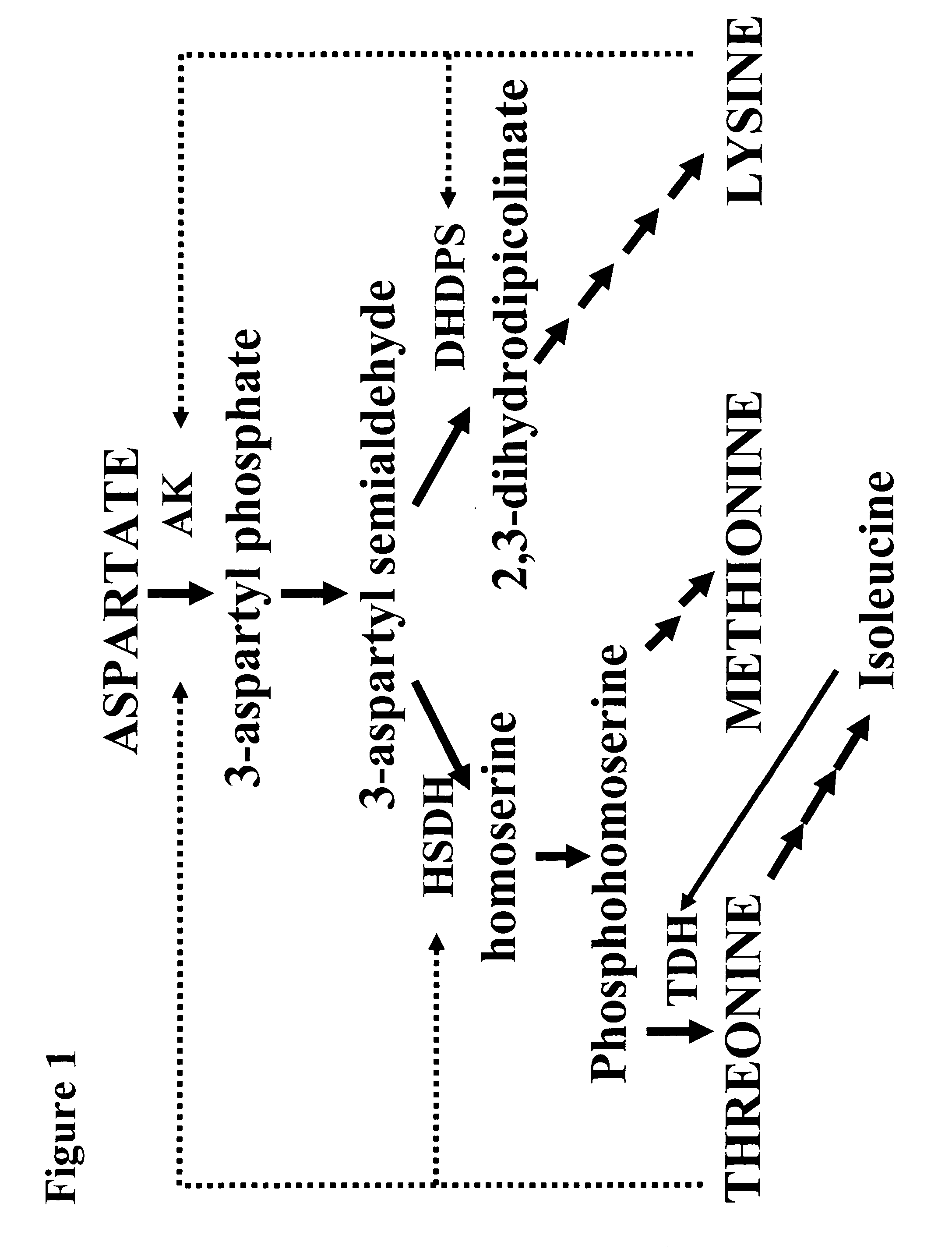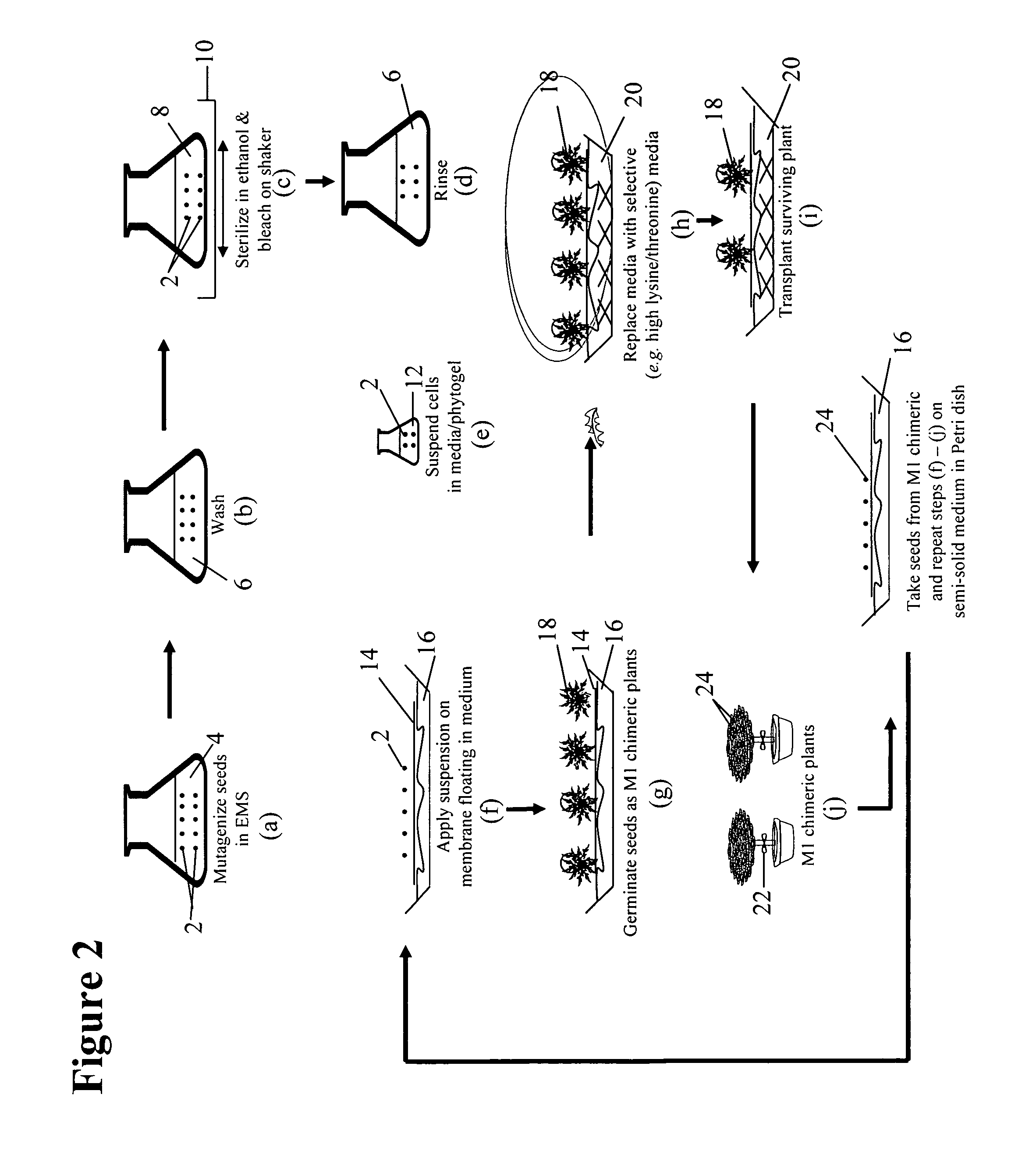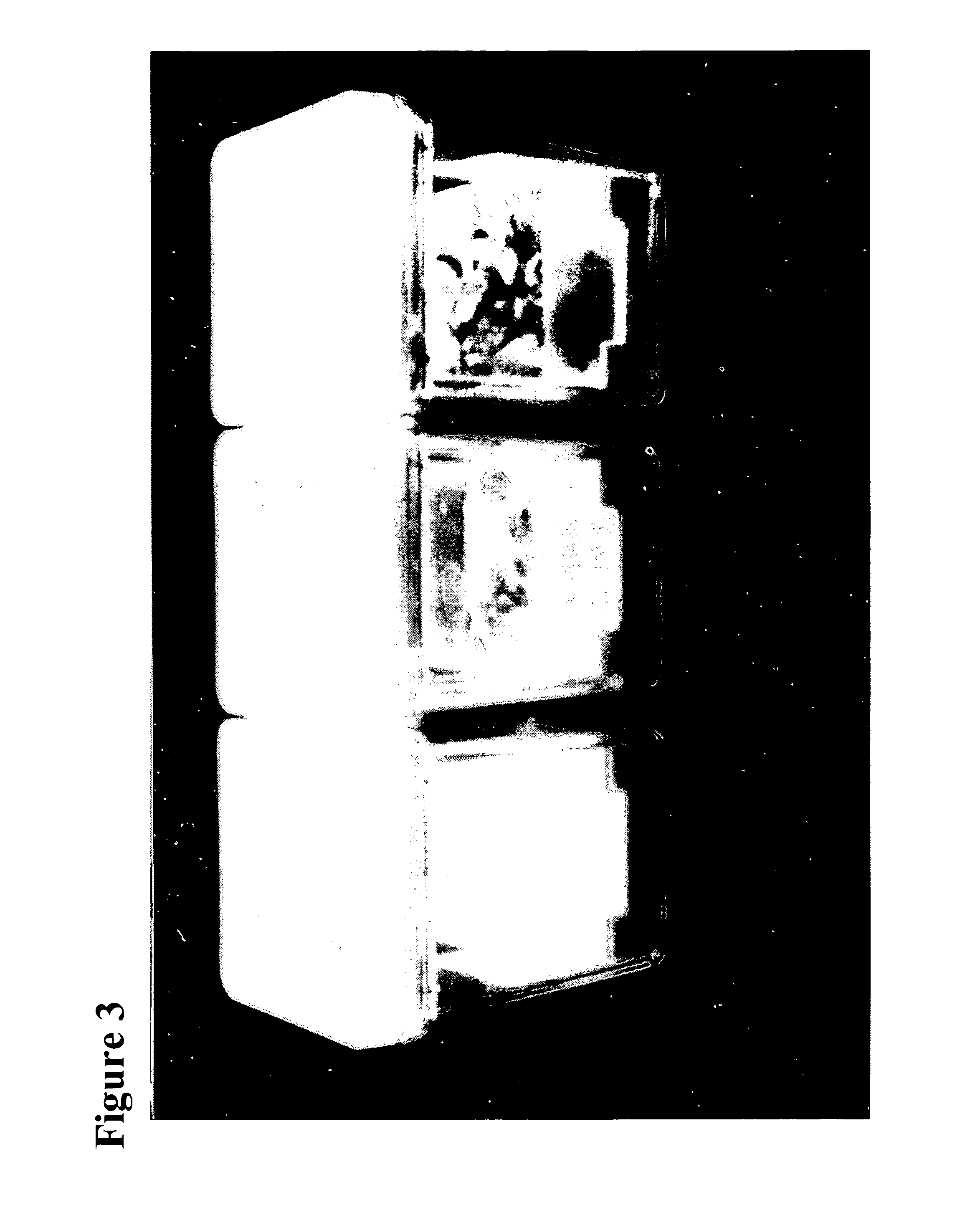High threonine producing lines of nicotiana tobacum and methods for producing
a technology of nicotiana tobacum and high threonine, which is applied in the directions of transportation and packaging, packaging, sacks, etc., can solve the problems of safety and regulatory concerns, significant increase in production costs, etc., and achieve the effects of improving taste and aroma, increasing threonine and other amino acids, and increasing the level of threonin
- Summary
- Abstract
- Description
- Claims
- Application Information
AI Technical Summary
Benefits of technology
Problems solved by technology
Method used
Image
Examples
example 1
[0092] The present invention has been used to prepare several lines of N. tobacum having above-average total free amino acid in flue cured lines. The mutagenized lines of N. tobacum have increased levels of most free amino acids, including threonine. Other amino acids increased more than 2 fold are asparagine, glutamic acid, glutamine, phenylalanine, lysine, histidine, and arginine. In addition, above-average levels of aspartic acid, serine, proline, glycine, alanine, methionine, isoleucine, leucine, and tyrosine are found in most of the modified lines.
[0093] To generate tobacco having increased amino acid concentration, seeds of N. tobacum were incubated in a solution containing ethyl methane sulfonate (EMS) at a concentration of about 0.1 to 0.3% for 20 hrs. The treated seeds were then washed with MiliQ water (purified with an NANO pure II system; Barnstead / Thermolyne Corp.; Dubuque, Iowa) for 30 minutes and sterilized with 70% ethanol for 30 seconds followed by 20% Clorox for 20...
example 2
[0096] The amino acid profiles of several N. tobacum lines resistant to threonine and lysine were quantified. As shown in Table 2, novel lines which produce at least 120 nmoles of total amino acids per milligram dry weight in cured leaf were generated using the selection method. This represents at least up to a 2 fold increase in total free amino acids production over unmodified flue-cured N. tobacum parent, which normally yields a maximum of about 50 to 60 nmoles / mg.
[0097] These novel lines of N. tobacum also produced unusually high levels of individual amino acids in flue-cured tobacco leaves. Specifically, these novel plant lines produced 0.53, 0.73, and 1.36 nmoles of free threonine per milligram of dry leaf weight of flue-cured leaf material. This represents a 3 to 6 fold increase in free threonine production over the unmodified N. tobacum parent line.
[0098] Although the method relies on feedback inhibition of lysine and threonine synthesis, above-average amounts of other ami...
example 3
[0103] It was found that resistance to threonine / lysine inhibition of protein synthesis is a dominant trait. FIG. 5 shows new lines of N. tobacum seedlings growing in petri dishes containing MS medium containing 3 mM lysine and 3 mM threonine. At the top, is the K326 N. tobacum line, which is a non-mutagenized parent of high threonine producer 120BW. At the right is the 120BW line, and at the left, is the F 1 progeny of K326 (the non-mutagenized parent) and 120BW (the high threonine producer). It was found that there are no F1 progeny which did not show resistance to lysine and threonine inhibition.
PUM
 Login to View More
Login to View More Abstract
Description
Claims
Application Information
 Login to View More
Login to View More - R&D
- Intellectual Property
- Life Sciences
- Materials
- Tech Scout
- Unparalleled Data Quality
- Higher Quality Content
- 60% Fewer Hallucinations
Browse by: Latest US Patents, China's latest patents, Technical Efficacy Thesaurus, Application Domain, Technology Topic, Popular Technical Reports.
© 2025 PatSnap. All rights reserved.Legal|Privacy policy|Modern Slavery Act Transparency Statement|Sitemap|About US| Contact US: help@patsnap.com



